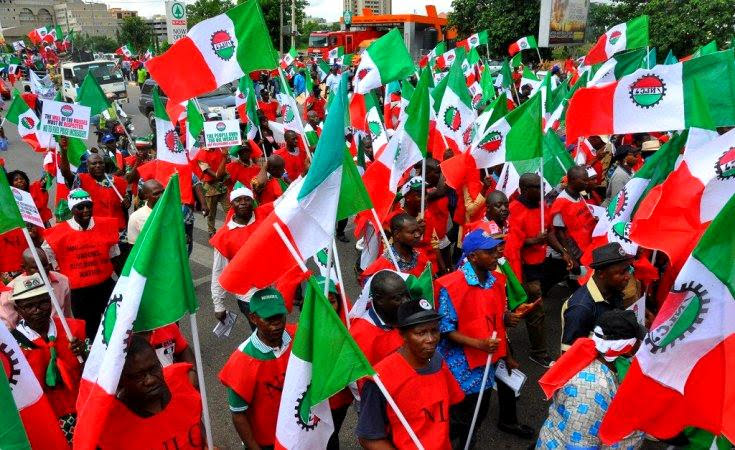The Tripartite Committee – the federal government , organized labour and the private sector, on the National Minimum Wage postponed its talks in anticipation of the Minister of Finance, Wale Edun’s submission of the salary template to President Bola Tinubu today.
Tinubu had on Tuesday directed the finance minister to present the cost implications for a new minimum wage within two days.
The President gave the order at a meeting with the government negotiation team led by the Secretary to the Government of the Federation, George Akume, at the presidential villa in Abuja.
Sources in the labour unions privy to the committee meeting said the parties decided to await the outcome of the presidential template before proceeding with further negotiations.
A source who attended the meeting said, “The meeting has been adjourned until Thursday. We showed understanding because we all know that the president gave the minister of finance 48 hours to come up with a minimum wage. So, we decided to give them the time. We will be meeting by 2 p.m.”
A top labour official who is a labour representative on the tripartite committee explained that the template was crucial to the minimum wage negotiation.
The source, who cannot be quoted because he was not authorised to disclose information to the media on the negotiation, expressed confidence that the talks would record good progress once the presidential template is presented to the parties.
The Minister of Information and National Orientation, Mohammed Idris, had hinted that the President wished to know the financial implications of the new minimum wage in 48 hours.
Briefing journalists on the presidential directive, the information minister said, “We were all there to look at all issues, and the President has directed the minister of finance to do the numbers and get back to him between today and tomorrow, so we can have figures ready for negotiation with labour.”
Idris assured of the president’s readiness to accept the committee’s resolutions, adding that “the president is determined to go with what the committee has said and he’s also looking at the welfare of Nigerians.
“Government is not against or opponent of labour discussions; the government is not an opponent of wage increase, but what is there is that government is always there to ensure a balance between what government pronouncement is and what the realities are on the ground.
“And therefore, we will work assiduously to ensure that whatever promises the government makes are promises that will be kept. That is the idea of this meeting.”
Furthermore, he said Tinubu directed the government representatives to work collectively with the organised private sector and the sub-nationals to achieve a new affordable wage award for Nigerians.
Idris explained, “The President has given a marching order that all those who have negotiated on behalf of the Federal Government and all those who are representatives of organised private sectors, the sub-nationals to come together to have a new wage that is affordable, sustainable and realistic for Nigerians.
“The wage is not just that of the Federal Government; as I mentioned earlier, the sub-nationals are involved, the organised private sector is involved; the Labour stepped out during that procedure. Now we have come back to the negotiation table.”
The minister assured that all hands would be on deck to present a new minimum wage for Nigerians in one week.
“All of us will work together assiduously within the next week to ensure that we have a new wage for Nigeria that is acceptable, sustainable and realistic,” Idris said.
Despite the intervention of the leadership of the National Assembly, labour embarked on a nationwide strike on Monday and Tuesday, crippling economic activities nationwide.
Banks, airports, public schools and courts were shut, forcing the Federal Government to convene an emergency meeting to find a way out of the impasse.
Following a meeting with the SGF, National Assembly leaders, and the National Security Adviser, Nuhu Ribadu, on Monday, the unions announced on Tuesday the suspension of industrial action for five days after President Tinubu agreed to pay a national minimum wage higher than N60,000. The tripartite committee pledged its readiness to convene daily until a new minimum wage is announced.
In a television interview, the President of the Trade Union Congress, Festus Osifo, said the unions would not insist on its N494,000 demand, indicating that the labour leaders were willing to accept a reasonable compromise.
Though the union leader refused to mention a specific amount, he said the new minimum wage must equal purchasing power to the value of N30,000 in 2019 and N18,000 in 2014.


